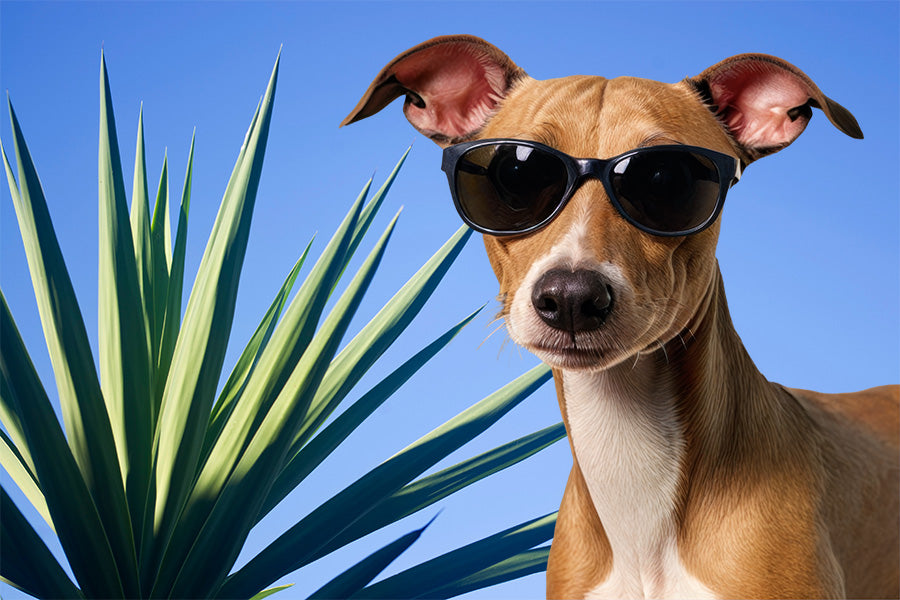The Bond: Do Dogs Have a Favourite Person?

Research indicates that dogs often form strong attachments to specific individuals.
This can be influenced by various factors such as the amount of time spent together, the quality of interactions, and the emotional support provided. Studies have shown that dogs tend to gravitate towards those who engage in positive reinforcement, such as playtime and affection, creating a deeper bond.
This preference can manifest in behaviours like following their favourite person around the house, seeking their attention, and displaying excitement upon their arrival.
Understanding these dynamics can help dog owners foster a more meaningful relationship with their pets, ultimately leading to a happier and more fulfilling companionship.
The Bond Between Humans and Dogs
When we examine the relationship that exists between humans and dogs, it becomes clear that there is a deep and meaningful connection that many people share with their canine companions. This bond extends beyond simple companionship; it encompasses love, loyalty, and understanding.
Dogs are known for their unwavering loyalty and their ability to form strong attachments with their human caregivers. As we explore the ways in which dogs express their affection, we can uncover the various nuances of dog love and the important role that humans play in fostering this unique relationship.

Exploring Dog Love
Understanding how dogs express love and affection is an intriguing area of study that has garnered the interest of both researchers and dog owners alike. Dogs can show their affection in numerous ways, including through physical touch, excited behaviour, and playful interaction.
Many dog owners have experienced moments when their pets exhibit joy upon seeing them or seek comfort by cuddling close. By delving into the psychology of dogs, we can better appreciate the dynamics of their emotional lives and how they relate to us as their human friends.
The Role of Companionship in Dog Behaviour
Companionship plays a crucial role in shaping dog behaviour and emotional well-being. Dogs are social animals that thrive on interaction, and the quality of their relationships with humans can significantly influence their behaviour and overall happiness.
Through companionship, dogs learn to trust and bond with their owners, creating a sense of security and stability in their lives. This connection is essential for helping dogs feel comfortable and confident in their environment, ultimately leading to healthier and more fulfilling lives.
Do Dogs Really Have a Favourite Person?
Dogs often exhibit a range of behaviours that suggest they have a preferred person, which can be observed in their daily interactions. For instance, a dog may choose to sit closer to one family member during a movie night, follow them around the house, or even bring them their favorite toy as a sign of affection.
These behaviours indicate not only a preference but also a deeper emotional connection that can be nurtured through consistent positive experiences. By recognizing and responding to these signs, owners can further strengthen their bond with their dogs, ensuring that their pets feel loved and valued in their presence.
Scientific Studies on Canine Preferences
There has been considerable scientific interest in understanding whether dogs have a preferred person among their human companions. Various studies have been conducted to explore canine preferences, often revealing that dogs may indeed show a preference for specific individuals based on factors such as socialization, interaction styles, and the quality of relationships.
These studies provide valuable insight into canine behaviour and the emotional dynamics that define the relationships between dogs and their owners.
Anecdotal Evidence from Dog Owners
In addition to scientific research, many dog owners have shared personal experiences that support the idea that dogs can have a favourite person. Owners often recount stories of their dogs displaying particularly affectionate behaviours towards one individual while being more reserved with others.
These anecdotes highlight the unique ways in which dogs form attachments and how their preferences can manifest in everyday interactions. Such observations underscore the individualized nature of each dog's personality and its relationship with human companions.

Characteristics of a Dog's Favourite Person
Dogs often exhibit distinct preferences for certain individuals, which can be attributed to a combination of factors including shared experiences, emotional connections, and the owner's ability to meet the dog's needs.
For example, a dog may feel particularly attached to the person who regularly feeds them, takes them for walks, or engages in playtime. This attachment can also be influenced by the owner's demeanor; dogs are highly perceptive to human emotions and may gravitate towards those who display calmness and affection.
As a result, the characteristics and behaviours of a dog's favourite person can significantly shape the dynamics of their relationship, leading to a unique bond that is both rewarding and enriching for both parties.
Traits That Dogs Are Attracted To
Dogs can be drawn to certain traits in their owners that may influence their preferences. Common characteristics that dogs often appreciate include kindness, warmth, and a gentle demeanour.
Owners who engage positively with their dogs—through petting, play, and attention—are likely to foster a deeper bond.
Understanding the traits that appeal to dogs can help owners strengthen their relationships and create environments where their dogs feel loved and secure.
Behavioural Patterns That Influence Affection
In addition to individual traits, certain behavioural patterns exhibited by owners can significantly impact the affection that dogs feel. Consistency in routines, positive reinforcement during training, and regular social engagement can contribute to a strong bond between dogs and their human companions.
Dogs are often sensitive to the emotional states of their owners, and those who provide stability and reassurance tend to cultivate a stronger connection with their pets. This interaction plays a vital role in fostering a nurturing environment that encourages loyalty and affection.
Fostering a Stronger Connection
One effective way to foster a stronger connection with your dog is through shared experiences that create lasting memories. Activities such as hiking, visiting dog parks, or even simple outings to pet-friendly cafes can enhance the bond between a dog and its owner.
These experiences not only provide opportunities for fun and adventure but also allow dogs to associate positive feelings with their favourite person.
By engaging in new and exciting activities together, owners can reinforce their role as a source of joy and security in their dog's life, ultimately deepening the emotional connection that defines their relationship.
Engaging in Play and Training
To cultivate a more profound connection with a dog, engaging in play and training is essential. Interactive activities not only provide physical exercise but also stimulate mental engagement, allowing both the dog and owner to enjoy quality time together.
Training sessions can establish trust and open lines of communication, enhancing the bond and making the dog feel valued and secure in the relationship.
Emotional Support in Pet Companionship
Providing emotional support is another key aspect of nurturing a relationship with a dog. Dogs, like humans, can experience feelings of anxiety, fear, and stress, and a supportive owner can make a significant difference in helping a dog navigate these emotions.
Through comfort and reassurance, a dog learns to trust their owner, which can lead to a stronger bond and a more profound sense of canine companionship.

Ensuring Routine and Stability
Maintaining a consistent routine and ensuring stability in a dog's environment are vital for fostering a solid connection. Dogs thrive on predictability, which helps them feel safe and secure. By establishing regular feeding times, exercise schedules, and opportunities for social interaction, owners can create an atmosphere where dogs feel understood and cared for, ultimately deepening the bond between them.
Conclusion: The Joy of Being Your Dog's Favourite
In conclusion, the joy of being a dog's favourite person is a rewarding experience that encompasses mutual affection, trust, and companionship. Understanding the science behind canine preferences as well as the characteristics that shape these bonds can enhance the relationship between humans and their dogs.
By actively engaging with and supporting their dogs, owners can foster deeper connections, leading to enriched lives for both themselves and their furry friends. The happiness that comes from being your dog's favourite is undeniably fulfilling and serves as a reminder of the enduring power of love and loyalty that exists in this unique partnership.
For more helpful insights and information, check out our related blog posts here:
Creating Bonding Moments Through Dog Grooming


